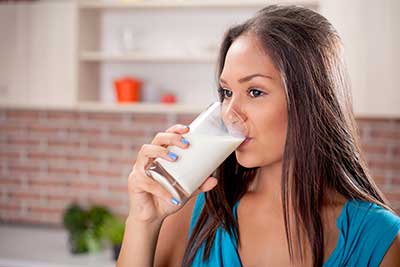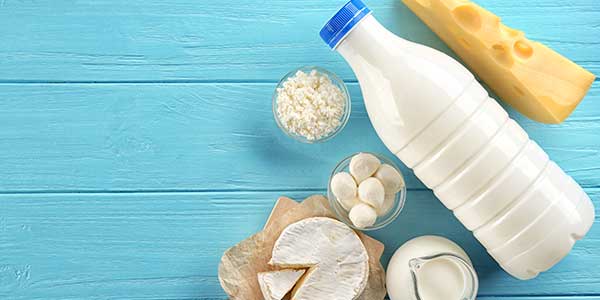Want to prevent early menopause? New research shows that you might want to consider adding more low-fat dairy products to your diet.
In a study recently published in the American Journal of Clinical Nutrition, a team of researchers at the University of Massachusetts claim to have found evidence that suggests that higher levels of calcium and vitamin D can help reduce the risk of women developing early-onset menopause. Defined as cessation of the ovaries before the age of 45, the condition affects approximately 10 percent of women and has been directly linked to an increased risk of numerous serious health problems.
Examining the Conclusions of the Study

Prior to this study, doctors had yet to identify any recognizable risk factors that contributed to the ovaries shutting up shop before it was really their time. However, after examining a database of over 1.13 million pre-menopausal women, the researchers were able to conclude that those women who had the highest intake of vitamin D had around a 17 percent lower chance of going through the change before the age of 45 compared to those women who had the lowest vitamin D intake. The study also found a similar trend amongst those women who had the highest calcium intake, although this wasn’t quite as statistically significant as with vitamin D intake.
As part of their study, the researchers were also able to evaluate the sources of vitamin D and calcium. When taking this into account, it seems that dairy is an excellent choice for those women hoping to delay the change. The study showed that taking vitamin D and calcium supplements actually did nothing to lower the risk as only dietary sources seemed to have any effect. Still, not all dietary sources are equal, as the researchers showed that obtaining calcium and vitamin D from dairy sources led to a much more significant decrease in risk than from other non-dairy dietary sources.
What Does All This Mean?
The findings of the study are most definitely interesting, and it seems that including more low-fat dairy in your diet is definitely something that all pre-menopausal women should consider. However, the researchers were quick to point out that their study is by no means definitive, and in fact, concluded the study by specifically stating that much more research is required in order to evaluate the link further. Specifically, they feel that more research needs to be done on the effect of vitamin D itself and also into other components of dairy that could also be playing a role in this decreased risk.
Furthermore, the researchers also noted that calcium and vitamin D still only had a modest effect on lowering the risk. Nonetheless, until much more research is done and scientists can finally pinpoint exactly what leads some women to go through the change earlier, it probably wouldn’t be a bad idea for all younger women to ensure that they include plenty of low-fat dairy products in their diet just in case.


